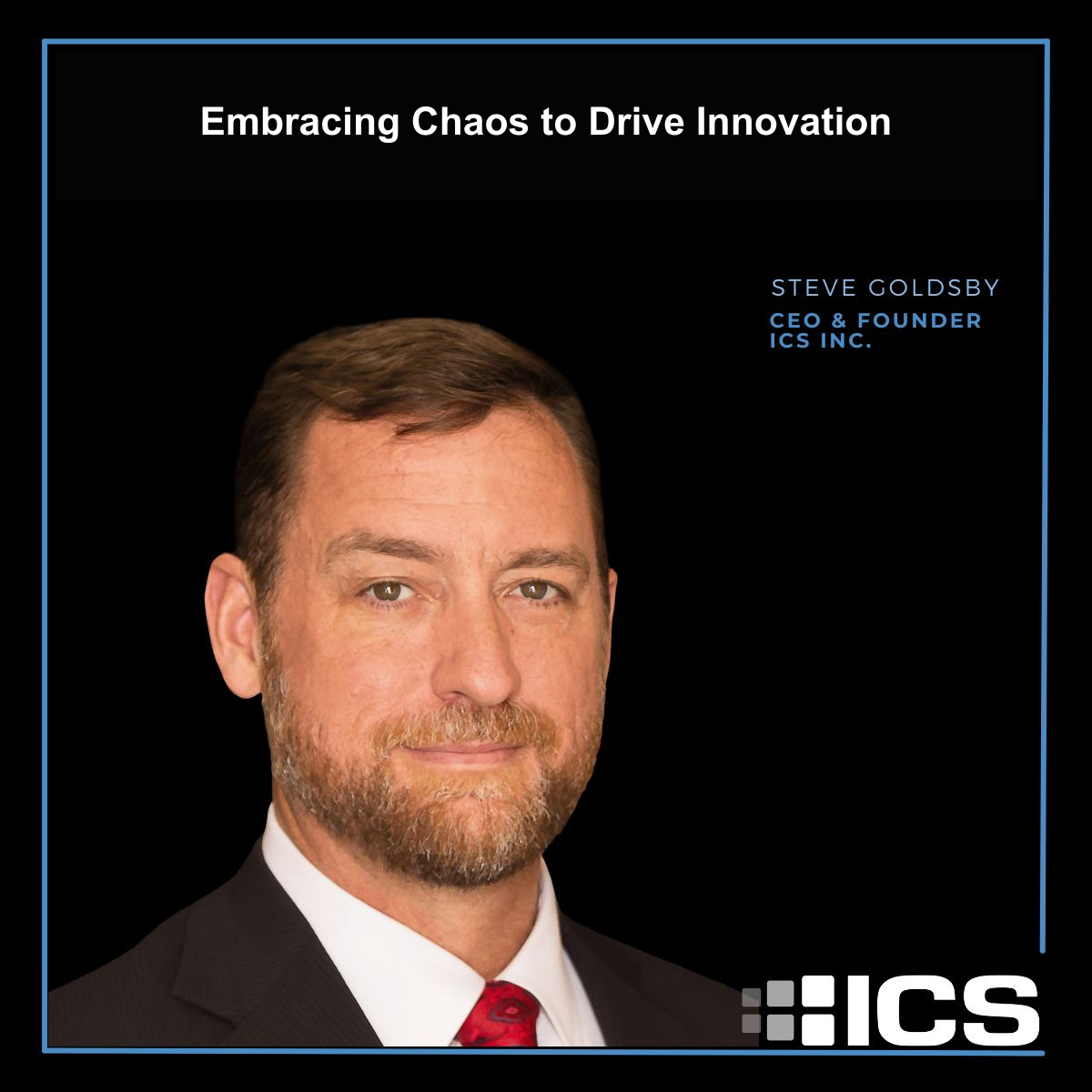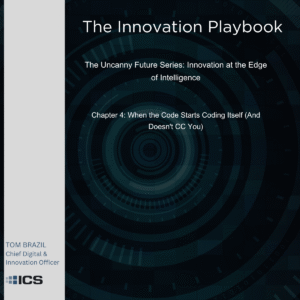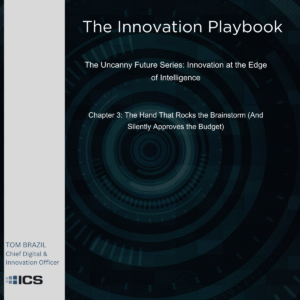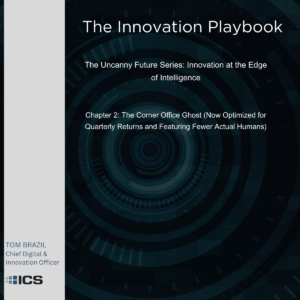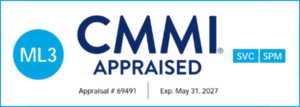As leaders in Federal Government Contracting, we often face complex challenges in Enterprise IT and Cybersecurity. But what if the key to breakthrough solutions lies in embracing the very chaos we try to avoid?
Tim Harford’s TED talk “How Frustration Can Make Us More Creative” tells the story of Keith Jarrett’s legendary Köln Concert. Forced to play on an “unplayable” piano, Jarrett created the best-selling solo jazz album in history. This unexpected triumph parallels our work in FedGovCon, where we encounter our own “unplayable pianos”: Legacy systems resistant to modernization; Evolving cybersecurity threats; Stringent regulatory requirements; and Budget constraints.
At ICS, our CDIO Tom Brazil has developed the Agile Innovation Program and Project Management (AIPPM) framework that transforms these obstacles into opportunities, much like Jarrett turned a subpar instrument into a career-defining moment. This framework enables us to:
- Embrace “messes” as catalysts for creativity: We use Agile Innovation Sprints to explore diverse ideas through iterative prototyping and experimentation. Tools like MIRO boards facilitate divergent thinking before converging on promising concepts.
- Approach unstructured problems systematically: AIPPM provides a structured yet flexible process with stage gates guiding projects from ideation to deployment. We incorporate ISO 9001’s PDCA cycle and the OODA loop for continuous alignment with objectives.
- Encourage calculated risks and unconventional thinking: We promote intelligent fast failures that contribute to knowledge growth, balancing creative exploration with strategic focus.
- Transform constraints into innovative solutions: We leverage limitations to push boundaries, using agile methodologies to rapidly iterate and refine solutions that deliver exceptional value.
- Foster cross-disciplinary collaboration: AIPPM integrates diverse perspectives throughout the innovation process. Tools like GitLab and MIRO facilitate seamless communication, ensuring projects benefit from collective intelligence.
By implementing this framework, we’ve achieved our own “Köln Concert” moments:
- Increased successful project outcomes
- Reduced time-to-solution for complex IT challenges
- Boosted team satisfaction and engagement
- Dramatic cost and cycle-time reductions
These aren’t just numbers – they represent real impact on government operations and national security, akin to how Jarrett’s improvised performance resonated with millions.
What’s your “unplayable piano” in your current projects?
#GovCon #CEO #Innovation #Leadership #GovernmentContracting #ISO9001
https://www.ted.com/talks/tim_harford_how_frustration_can_make_us_more_creative


